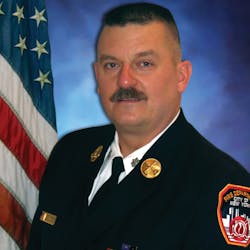“Start Your Own Parade” might seem like an odd title for a fire service article, but, in fact, the phrase makes a great point and serves as a great concept for members to consider. What exactly does “start your own parade” mean? Like many other issues and concepts, there are many different perspectives from which to view this statement.
Rules vs. your best practices
Start your own parade means to move forward with your ideas, with your passions, with your priorities. Although we work in a sector that’s termed as semi-military and we have a host of rules and guidelines that we must follow to be successful, there is plenty of room for improvement.
How about that young man who is promoted to lieutenant? He was a firefighter for more than 10 years and was a well-trained member of the department. During his years as a firefighter, he worked with several officers. Each had his/her own way of running the shift. Now that he is riding the front seat, he has some decisions to make. Is he going to hustle to the rig for every run, any time of day, any type of call? Is he going to ask, require or insist that his crew do the same? Will he require his firefighters to wear the proper uniform and be well-groomed or allow something less than “perfect” to exist?
All of these questions and more can be answered in a number of ways without being right or wrong, and in that lies the real question. If you are a newly promoted or elected or selected officer—and that means both career and volunteer or on-call officers—you eventually will have to make these decisions.
If you are a senior company officer, you probably can remember your first days, weeks and months in the new rank. Did you mimic or copy or model yourself as was expected or as you thought would be best? Many young, new officers fall into that trap and do what always has been done. They do what the other officers are doing. Now, this might work well, and it might even be considered the best way, but is it your way? Is it the way that you believe that will be best for your crew, for the department and, most importantly, for the public? As time goes on, as we gain experiences, encounter problems and difficulties and even have successes, we start to develop our own set of best practices. Developing your best practices, implementing them and enforcing them is starting your own parade.
The job, the shift, the company
I can remember working as a new lieutenant in the FDNY, traveling around the city and working in different battalions and divisions and firehouses. I certainly had my own view of and opinion about how things should be, but I sure did learn a lot watching and working with many other officers who were around the job. I recall working a night tour with an officer who did just about everything differently than I ever saw. Most of the activities and goings-on in that firehouse that night revolved around … the job. Not around when the meal would be ready. Not around when the Yankees game was going to start. This behavior was quite unusual from my perspective. I’m not saying that every officer I ever worked with wasn’t into the job or conducting training. However, this lieutenant wasn’t interested in anything else until every aspect of the work that was required for the job was completed. This officer was starting his own parade.
I don’t know how many of the firefighters who worked for this officer felt the same way about the job and the shift and their company, but from what I could see, all of the crew were on the same page. I later found out that it was difficult to transfer into that company and even more difficult to be assigned to that officer’s shift.
The message here is simple to understand. However, it can be difficult to enact. Take the time to recognize the behaviors and work ethics and attitudes that you like and then promote them. How you act and communicate and behave and dress speak volumes about you. These things also are contagious and, as such, they are great ways to build and maintain an effective fire company.
Don’t just watch the parade. Start your own parade!
About the Author
John J. Salka Jr.
Battalion Chief
JOHN J. SALKA JR., who is a Firehouse contributing editor, retired as a battalion chief with FDNY, serving as commander of the 18th battalion in the Bronx. Salka has instructed at several FDNY training programs, including the department’s Probationary Firefighters School, Captains Management Program and Battalion Chiefs Command Course. He conducts training programs at national and local conferences and has been recognized for his firefighter survival course, “Get Out Alive.” Salka co-authored the FDNY Engine Company Operations manual and wrote the book "First In, Last Out–Leadership Lessons From the New York Fire Department." He also operates Fire Command Training, which is a New York-based fire service training and consulting firm.

